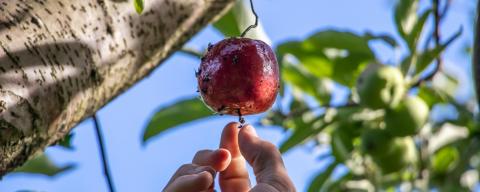Safe and Responsible Pesticide Disposal: What to Do with Unused Products
Proper disposal of pesticide products is essential for protecting human health, wildlife, and the environment. Improper disposal—such as pouring pesticides down the drain, into storm sewers, or onto the ground—can contaminate water supplies, harm beneficial organisms, and violate environmental laws. If you have old or unused pesticides, never throw them in the trash unless the label specifically allows it.
So what do I do with them? How and where can I dispose of them? What do I do?
General Disposal Guidelines:
Follow these general disposal guidelines to dispose of pesticides the right way:
1. Read the Label First
Always start by checking the product label. It will include specific instructions for storage and disposal. Follow them closely.
2. Never Reuse Empty Containers
Empty pesticide containers should never be reused — even for non-chemical storage. Residue can linger and cause harm.
3. Package and Store Safely
If you're not disposing of them immediately, keep pesticides in their original containers with labels intact. Store them in a secure, upright position away from food, children, and pets.
4. Don’t Dump or Trash Them
Never pour pesticides down the drain, onto the ground, or into the trash. These actions are unsafe and in many places, illegal.
5. Use Authorized Collection Services
Dispose of pesticides through certified programs like Household Hazardous Waste (HHW) Collection Days or licensed hazardous waste vendors. Find Household Hazardous Waste collection events here (PDF)
While not state-endorsed, the following companies can assist with pesticide disposal:
- Maine Labpack Inc. – 207-767-1933
- Triumvirate Environmental Inc. – 617-628-8098
- New England Disposal Technologies Inc. – 800-698-1865
email: sales@NEDTinc.com
For more help, contact the
- Division of Pesticide Control – Call (603) 271-7788 for more information on safe pesticide disposal.
- Local Household Hazardous Waste (HHW) Program – They can help you find drop-off sites or upcoming events.
- Local Extension Office – Your local extension office is a great resource for region-specific guidance and safety tips.
Extension Services & Tools That Help NH Farmers Grow
Newsletters: Choose from our many newsletters for production agriculture
Receive Pest Text Alerts - Text UNHIPM to (866) 645-7010

